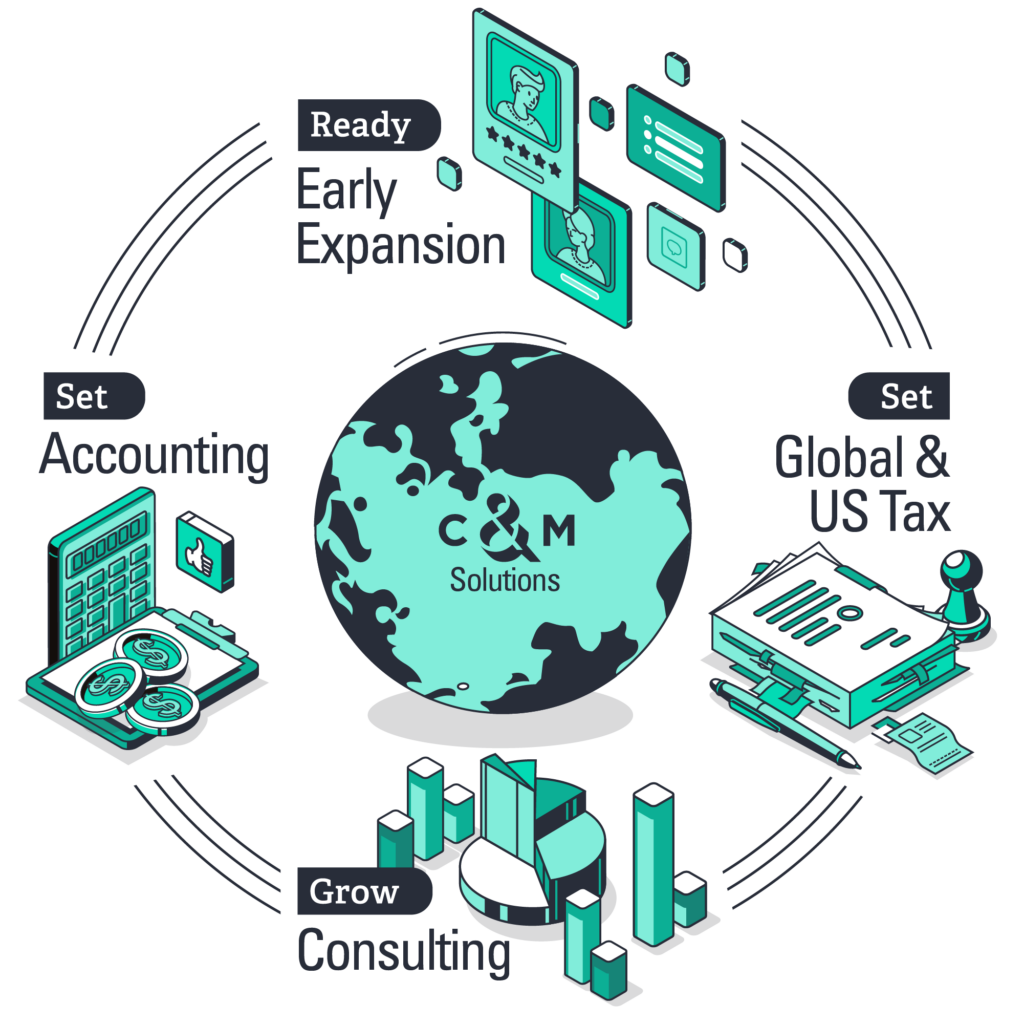International Businesses
Interested in expanding your business globally? Our award-winning global expansion services help you navigate tax requirements, financial considerations, and important guidelines for a successful expansion.
Teresa Gordon
Shareholder, International
Teresa leads the firm's international group and supports global businesses through all phases of growth as they expand to and from the U.S.
Nina Wang
Shareholder, International Tax
As a member of the firm's international group with a focus on China, Nina specializes in international tax planning and compliance.
Expanding Your Business to & from the U.S.
Many businesses consider U.S. expansion a vital part of their growth plans. Clayton & McKervey is an award-winning international U.S. based CPA Firm. We recognize businesses in the U.S. or abroad may find it advantageous to expand into other countries to take advantage of labor, tax rates or other competitive assets. Whether expanding to or from the U.S., our team of international consultants has the specialized knowledge to customize accounting, tax, and business consulting services to meet your specific needs.
Overwhelmed by the complexities of managing an international entity?
Let us guide you through the global marketplace and help you navigate the ins and outs of your growing business. Our team of experts will assist your business with financial planning, accounting, and international tax compliance.
Lacking confidence in your business’s global expansion tax plan?
We’ll help you understand the tax impacts of doing business across borders and navigate the complexities of international tax filing and planning.


Struggling to manage the tax and accounting reporting requirements from country to country?
Coordinating financial statements across borders can be a challenge, however, we offer solutions for businesses looking to expand to and from the United States. Our experts make sure your foreign parent company receives the information it needs on time.
Taking advantage of opportunities to maximize profits through the international ecosystem?
The global marketplace provides plenty of options. We can help increase your leverage worldwide. Clayton & McKervey is the accounting firm committed to helping your business expand globally.
“I would happily recommend Clayton & McKervey to anyone. They work to understand your business without selling you more than what is needed. These are nice people who really know what they are talking about.”


Nigel T., TNEI
Navigate Global Expansion
Navigating Tax and Accounting Requirements for Foreign Companies: Expanding to the U.S.


In the last 30 years, we’ve helped hundreds of foreign-owned companies successfully establish operations in the U.S. Clients range from startups to multinational companies in targeted industry sectors. Many provide manufacturing or engineering capabilities, or set up a sales and service support office. The time you and your team spend on accounting and tax issues can be minimized by working with us, so you can focus on key drivers – like operations and sales. We’ll help you deal with common issues, understand key tax provisions and meet right team of providers for long-term success.
UK Based Companies, learn more here.
Tax and Accounting Consulting and Planning for U.S. Based Companies Expanding Abroad
International expansion presents an exciting opportunity for growth, but certainly presents some challenges. Middle-market clients face the realities of a global economy on a daily basis, confronting the pressures of competition by sourcing products or services from other countries, licensing products in foreign markets or opening subsidiaries outside the U.S. To proactively manage multinational tax and financial reporting issues, we invest in specialized training for our team focused on these challenges. Through our global network you will benefit from experienced professionals around the world as needed and meet key connections.


Expanding to the U.S.
There are many items to consider when planning a U.S. expansion, including tax requirements, financial considerations and other important guidelines. Through our partnerships with PrimeGlobal and Centuro Global, we collaborate with other global firms to empower economic development, promote growth into the U.S. and help businesses achieve successful international expansion.
Centuro Global is a business hub for high-growth entrepreneurs, small to mid-sized entities and multi-national companies seeking global market entry strategies and connection to service providers. Our partnership allows us to collaborate with like-minded leaders, advisors and investors from around the world.


Teresa Gordon
Shareholder, International
Teresa leads the firm's international group and supports global businesses through all phases of growth as they expand to and from the U.S.
Nina Wang
Shareholder, International Tax
As a member of the firm's international group with a focus on China, Nina specializes in international tax planning and compliance.








